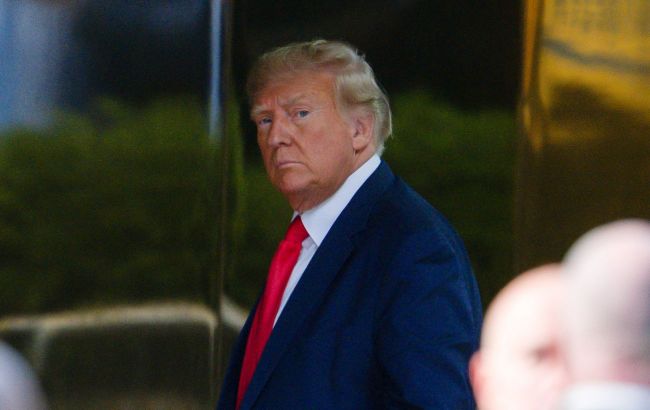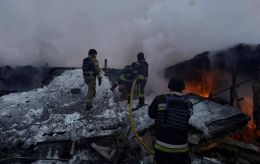Trump’s inauguration unlikely to impact Ukraine battlefield - Expert warns
 Donald Trump (Photo: Getty Images)
Donald Trump (Photo: Getty Images)
Changes on the battlefield in Ukraine should not be directly tied to Donald Trump’s inauguration as US president, as fighting is expected to persist even in the case of potential negotiations, Ivan Tymochko, head of the Reserve Council of the Ukrainian Ground Forces, stated in a comment to RBC-Ukraine.
"Once again, linking Trump’s inauguration to changes on the battlefield is misguided. The intensity of fighting will continue and may even escalate, even if some negotiation processes begin," Tymochko said.
According to Tymochko, Russian dictator Vladimir Putin typically increases attacks and military pressure to secure stronger positions during negotiations.
"Therefore, we shouldn’t expect significant counteroffensives tied to Trump’s inauguration. If such offensives do occur, they will solely be based on military expediency - leveraging available forces, resources, and opportunities to exploit weaknesses in the enemy," the expert explained.
He noted that available capabilities, potential outcomes, and strategic necessity determine actions on the battlefield. Military operations are planned considering all possible scenarios, from the most favorable to the least successful.
"Military operations are planned based on military necessity, not political agendas. This is why I always emphasize that Putin prioritizes political goals over military ones. Meanwhile, thankfully, our focus remains on military expediency when planning operations," Tymochko stressed.
Will Russia launch a missile strike on Ukraine during Trump's inauguration?
According to Tymochko, the planning of missile strikes is done in advance. This depends on many factors: the availability of operational aviation, available munitions, and their reserves, and stockpiles.
"After we successfully destroyed several of their arsenals, successfully set fire to a warehouse in Engels, and in Engels-2, we struck a plant that essentially supplied fuel for strategic aviation, or heavy bombers, the scale of missile strikes has, of course, decreased and become more chaotic," he noted.
He also mentioned that Russia is now launching strikes based on its capabilities after suffering serious losses in terms of material resources. Additionally, the Russians will now plan how to distribute and use their available arsenal on the battlefield or strike our rear cities.
"Because we have somehow gotten used to the idea that the enemy only strikes with missiles at the rear. The enemy also launches missile strikes, repeatedly, against the front line, where they are trying to break through the defense and cover the movement of their troops. So, missiles are also used at the front," Timochko explained.
He reminded that there are countermeasures, and anti-aircraft defense systems at the front, and military actions are regulated there.
"And then, civilians or strategic depth air defense systems perform their task in terms of warning, and so on. Therefore, there are many nuances, and differences. And missiles have always been and will continue to be used across the entire territory of Ukraine, regardless of whether there is an active phase of hostilities or not. So now they must redistribute their resources," he emphasized.
Recently, Trump stated his intention to meet with Putin as soon as possible after his inauguration on January 20. According to Trump, the conclusion of the war in Ukraine depends heavily on the Russian dictator.
Additionally, incoming US National Security Advisor Mike Waltz has indicated that a phone conversation between Trump and Putin could take place “in the coming days and weeks.”
The Kremlin has also expressed its readiness to meet with Trump without any preconditions.

